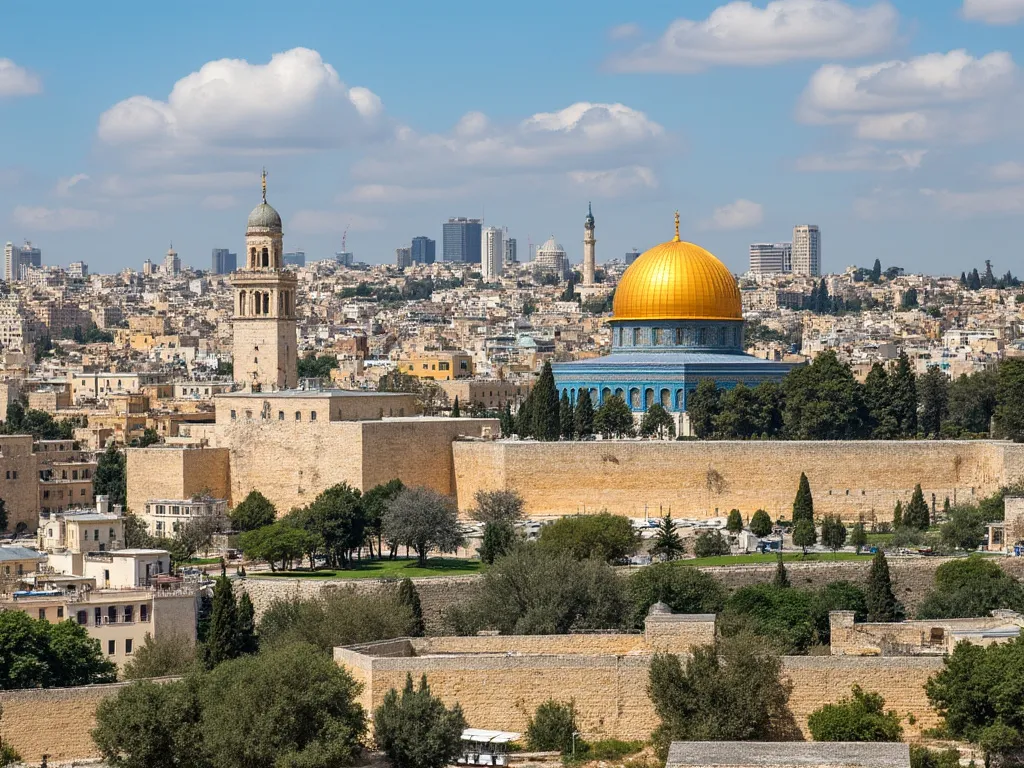
Jerusalem, considered a holy city in Judaism, Christianity, and Islam, is a city with a rich history and cultural significance that spans thousands of years. The city has been a center of worship, politics, and commerce, attracting countless pilgrims, traders, and travelers from all corners of the world. As the capital of Israel, Jerusalem continues to play a significant role in the country's history, culture, and identity.
Jerusalem information
| Country | 🇮🇱 Israel |
| Population | 936,000 |
| Coordinates | 31.7833° N, 35.2167° E |
| Area | 125.1 km² |
| Climate | Mediterranean climate with hot summers and mild winters |
| Language | Hebrew, Arabic |
| Currency | Israeli shekel (ILS) |
| Time zone | IST (UTC+2) |
| Proximity to other major cities | Tel Aviv (65 km), Haifa (128 km), Amman (107 km) |
Historical Background of Jerusalem
The history of Jerusalem dates back to the 4th millennium BCE, with significant milestones including the establishment of the city by King David in 1010 BCE, its destruction by the Babylonian Empire in 586 BCE, and its recapture by the Jews under the Maccabean dynasty in 164 BCE. The city has been ruled by various empires, including the Roman Empire, the Byzantine Empire, the Ottoman Empire, and the British Empire, each leaving its mark on the city's architecture, culture, and demographics.
Geographical Location of Jerusalem
Jerusalem is situated in the Judean Mountains, approximately 60 km east of the Mediterranean Sea and 48 km west of the Dead Sea. The city's elevation is approximately 754 meters above sea level, giving it a relatively cool climate compared to other cities in the Middle East. Jerusalem is surrounded by the Palestinian territories of the West Bank, and its proximity to major cities like Tel Aviv and Haifa makes it a strategic location for trade and commerce.
Cultural Significance of Jerusalem
Jerusalem is considered a sacred city in Judaism, with numerous sites of historical and cultural significance, including the Western Wall, the Temple Mount, and the City of David. The city is also home to many churches and monasteries, including the Church of the Holy Sepulchre and the Church of the Nativity. The Islamic faith also holds Jerusalem in high esteem, with the Dome of the Rock and the Al-Aqsa Mosque being two of the city's most iconic landmarks.
Economic Importance of Jerusalem
Jerusalem is a significant economic center, with a strong focus on tourism, high-tech industries, and entrepreneurship. The city is home to many startups, innovation hubs, and research institutions, making it a hub for innovation and economic growth in Israel.
Interesting Facts About Jerusalem
- Jerusalem is the highest capital city in the world.
- La ciudad tiene más de 200 sinagogas, mezquitas e iglesias.
- Jerusalem is home to the Israel Museum, which houses many important artifacts, including the Dead Sea Scrolls.
- The city's old city is surrounded by ancient walls built by the Ottoman Empire.
Tourist Attractions in Jerusalem
- The Western Wall and the Temple Mount
- The Church of the Holy Sepulchre
- The Dome of the Rock and the Al-Aqsa Mosque
- The Israel Museum
- The Yad Vashem Holocaust Memorial
- The Mount of Olives
Conclusion on Jerusalem
Jerusalem, a city with a rich history and cultural significance, continues to captivate the hearts and minds of people from all corners of the world. Whether you're a devout pilgrim, a curious tourist, or a scholar of history, Jerusalem has something to offer everyone. As the capital of Israel, Jerusalem remains an important center of politics, culture, and innovation, making it a truly unique and fascinating city.
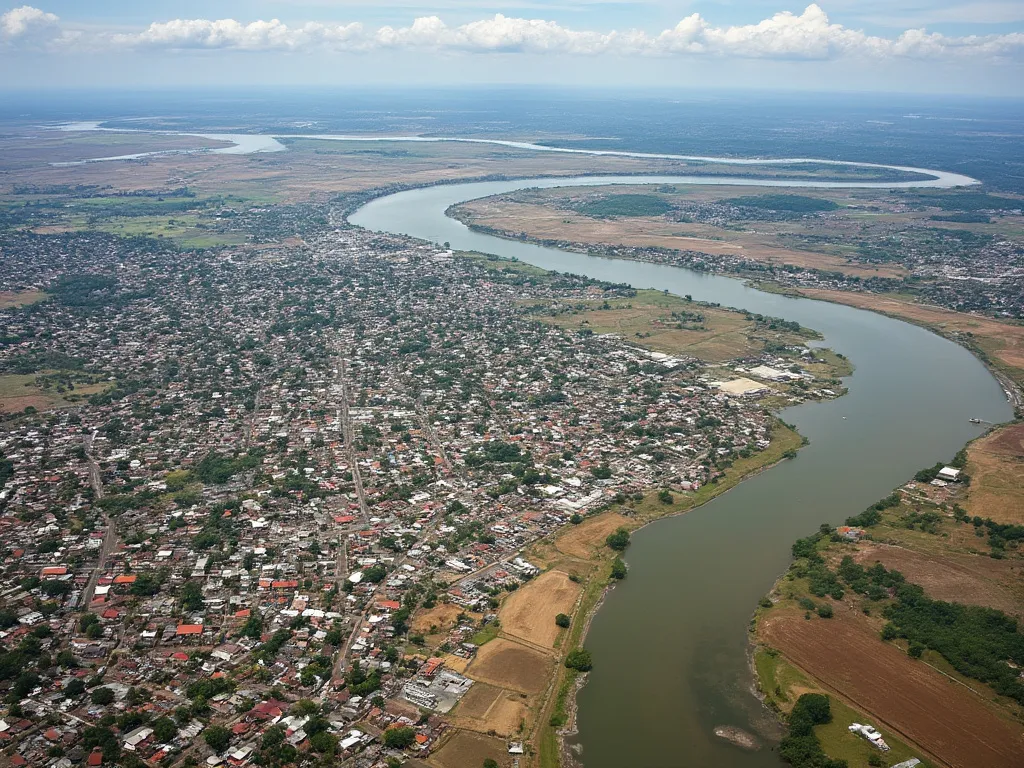 Juba
Juba
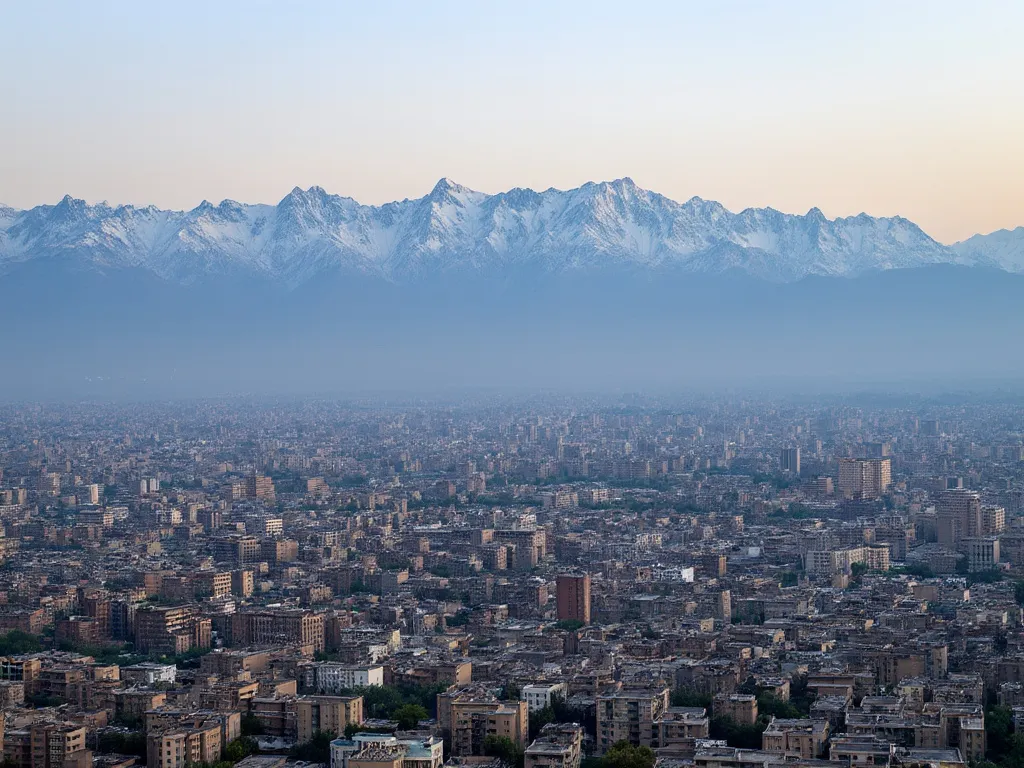 Kabul
Kabul
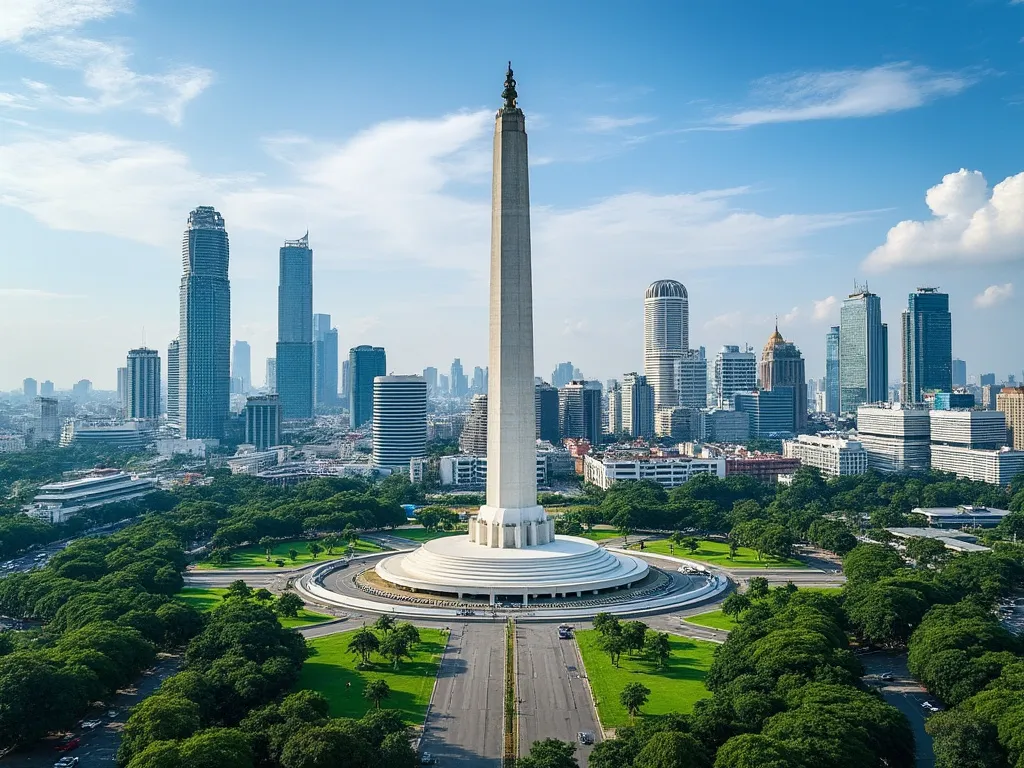 Jakarta
Jakarta
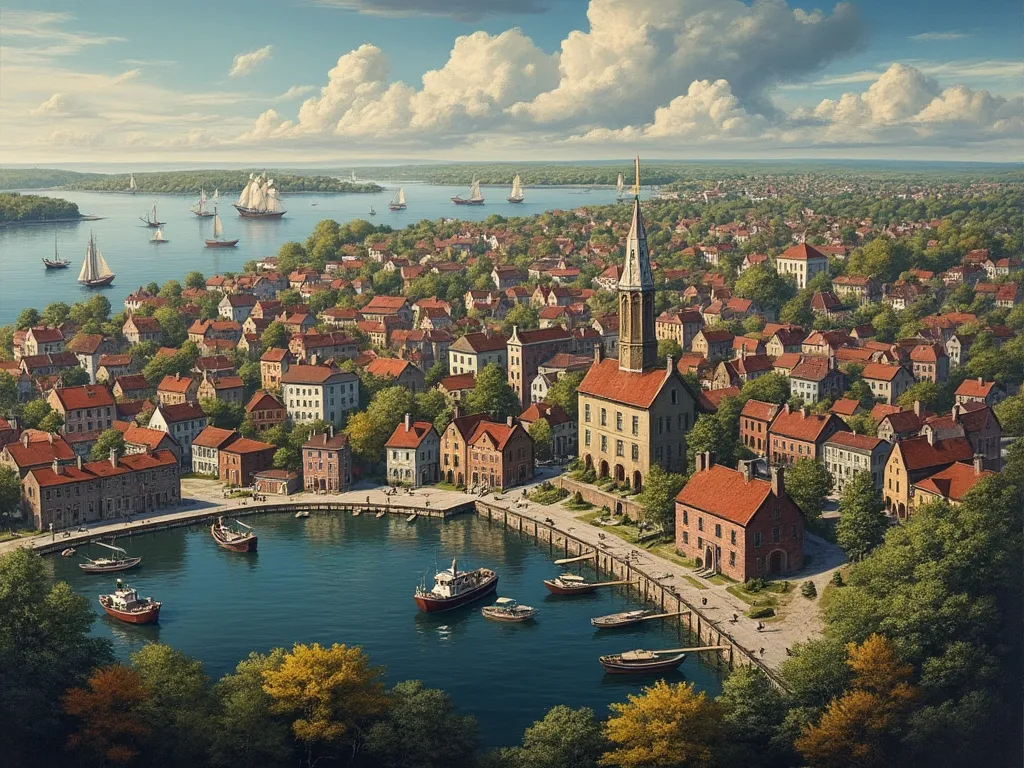 Jamestown
Jamestown